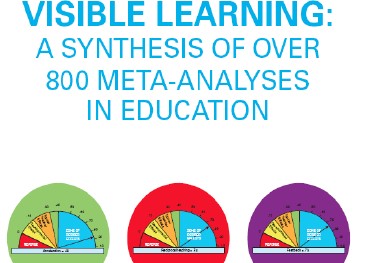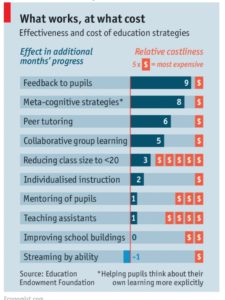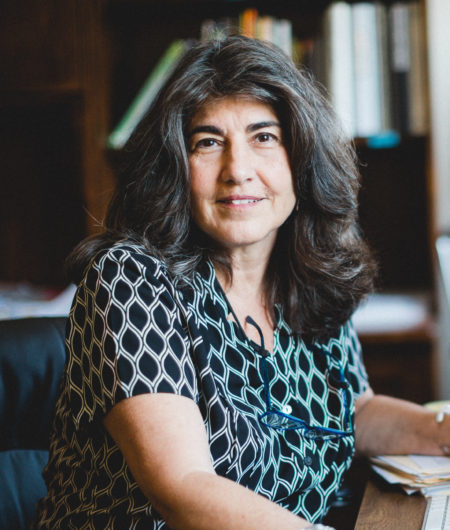Teacher Expertise Matters Most

Earlier this year I read a piece in The Economist titled Teaching the Teachers that addressed this research finding about what works best in successful schools:
Many factors shape a child’s success, but in schools nothing matters as much as the quality of teaching.
Here are a few quotes from the article:
“Eric Hanushek, an economist at Stanford University, has estimated that during an academic year pupils taught by teachers at the 90th percentile for effectiveness learn 1.5 years’ worth of material. Those taught by teachers at the 10th percentile learn half a year’s worth. Similar results have been found in countries from Britain to Ecuador. ‘No other attribute of schools comes close to having this much influence on student achievement,’ he says.”
“In a study updated last year, John Hattie of the University of Melbourne crunched the results of more than 65,000 research papers on the effects of hundreds of interventions on the learning of 250m pupils. He found that aspects of schools that parents care about a lot, such as class sizes, uniforms and streaming by ability, make little or no difference to whether children learn (see chart below). What matters is “teacher expertise”. All of “the 20 most powerful ways to improve school-time learning identified by the study depended on what a teacher did in the classroom.”
The Economist article grabbed my attention, especially the sub-title: Great teaching has long been seen as an innate skill. But reformers are showing that the best teachers are made, not born. I have been fortunate to work with thousands of teachers during my career as a literacy teacher trainer, and based on this experience, I couldn’t agree more with this position. Even the most naturally gifted teachers still need to learn evidence-based teaching practices; teachers are not born with this kind of instructional knowledge!
John Hattie, noted in the article, has been doing meta-analyses of studies related to successful schools for years, much of which is reported in his book Visible Learning, and also accessed at his website.
Hattie has identified these top 10 high-impact, evidence-based teaching strategies to be most effective:
- Direct instruction
- Note taking and other study skills
- Spaced practice
- Feedback
- Teaching metacognitive skills
- Teaching problem-solving skills
- Reciprocal teaching
- Master learning
- Concept mapping
- Worked examples
Most teachers need some training to learn how to use these strategies with students and to become the kind of “quality teachers” that are the focus of The Economist article. Educators who have participated in Keys to Literacy professional development may recognize that several of these same strategies form the cornerstone of our comprehension, vocabulary, and writing instructional routines.


 Joan Sedita is the founder of Keys to Literacy and author of the Keys to Literacy professional development programs. She is an experienced educator, nationally recognized speaker and teacher trainer. She has worked for over 35 years in the literacy education field and has presented to thousands of teachers and related professionals at schools, colleges, clinics, and professional conferences.
Joan Sedita is the founder of Keys to Literacy and author of the Keys to Literacy professional development programs. She is an experienced educator, nationally recognized speaker and teacher trainer. She has worked for over 35 years in the literacy education field and has presented to thousands of teachers and related professionals at schools, colleges, clinics, and professional conferences.
Yes. Great Blog, Joan
Good information, Joan. It confirms the approach that Keys to Literacy has taken for years. It’s nice to know that you are, and have been on the right track!